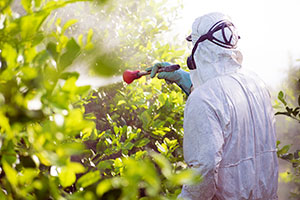
The Science Behind Natural Pest Repellents: Do They Really Work?
You're knee-deep in the green movement, but are you still battling bugs the old-fashioned, chemical-laden way? Here's your chance to understand the science behind natural pest repellents. Do they really work or is it all just a buzz?
Let's dive into the eco-friendly solutions, common ingredients, and recent studies that'll help you make an informed decision.
You're not alone in this journey, we're in it together, for a healthier, bug-free world!
Understanding Natural Pest Repellents
Before you start using natural pest repellents, it's crucial to understand what they're and how they function. You're not alone in wanting to keep your home and garden free of pests without resorting to harsh chemicals. Many of us are on the same journey, seeking safer and more environmentally friendly alternatives.
Natural pest repellents are solutions that use ingredients derived from nature to deter pests. They've been gaining popularity because they're seen as safer for humans, pets, and the environment. They work by exploiting the natural aversions or sensitivities that pests have to certain smells, tastes, or substances. For instance, some bugs can't stand the strong scent of certain essential oils like peppermint or citronella.
However, it's important to remember that 'natural' doesn't always mean 'harmless'. Some natural repellents can still pose risks, especially if used improperly. So, always heed the instructions and precautions indicated on the product label.
Joining this movement towards natural pest control means you're part of an important shift towards more conscious and sustainable living. But remember, knowledge is power. By understanding what natural pest repellents are and how they work, you're better equipped to make informed choices. You're not just blindly following a trend; you're being a responsible member of a community that cares for the planet.
The Appeal of Eco-Friendly Solutions
The allure of eco-friendly solutions can't be overlooked in our quest to combat pests naturally, can it? You're likely someone who deeply cares about our planet's well-being. And it's this very compassion that makes eco-friendly solutions so appealing to you. They offer a chance to protect your home or garden from pests without causing harm to the environment.
For starters, natural pest repellents often have less of an environmental footprint compared to synthetic ones. They decompose and break down faster, which means they're less likely to persist in our ecosystems and cause long-term harm. So, every time you choose a natural solution, you're not just solving your immediate pest problem, but you're also doing your bit for Mother Earth.
Moreover, eco-friendly solutions are often safer for you, your family, and your pets. You don't have to worry about harmful chemicals causing health problems in the long run. You can breathe easier knowing that the air you're inhaling isn't laced with toxins.
Above all, using natural pest repellents aligns with the growing global shift towards sustainability. You're part of a larger community of eco-conscious individuals striving for a healthier planet. It's this sense of belonging and collective action that makes eco-friendly solutions so attractive.
So, do natural pest repellents work? The answer is a resounding yes. They're effective, safer for your health, and kinder to our planet. And that's a win-win situation, isn't it?
In the following section, we'll explore some popular natural pest repellents and their effectiveness.
Common Ingredients in Natural Repellents
Now, let's delve into the common ingredients you'll find in natural pest repellents, and understand how they contribute to their effectiveness.
When you opt to go green, you're not only making a choice for your health but also playing a part in safeguarding the environment.
The following ingredients are commonly found in natural pest repellents:
Citronella: This plant-based oil is one of the most widely used natural repellents. It's proven effective against mosquitos, making it a fundamental ingredient in many natural repellents.
Lemongrass: Similar to citronella, lemongrass oil is potent against various pests, including ticks and fleas. This is why it's often used in natural repellents for pets.
Peppermint: This aromatic herb's oil isn't just refreshing; it's also a strong pest deterrent. Many insects, including ants and spiders, find its scent repulsive.
Neem: This powerful plant's oil is another robust all-natural pest solution. It's famously used in India to keep a myriad of pests at bay.
By choosing products with these ingredients, you're not just repelling pests naturally; you're also avoiding synthetic chemicals that can harm the environment and your health. You're part of a larger community that values natural solutions and sustainable practices.
How Natural Repellents Deter Pests
With these natural ingredients at your disposal, you might wonder how exactly they work to keep pests at bay. It's not magic, but science. These substances interfere with the pests' senses, making it difficult for them to locate or even tolerate your home. Let's delve into the specifics, shall we?
Firstly, many natural repellents simply smell bad to pests. Take garlic, for instance. While you might love it in your pasta, insects like mosquitoes find the smell repellant. The same goes for other strong-smelling substances like peppermint, lemongrass, and citronella. They all work by confusing or overwhelming the pests' sense of smell, making your home less inviting.
Next, there are natural repellents that affect pests' taste. Ever wondered why pests avoid certain plants? That's because they taste unpleasant to them! Capsaicin, the compound that gives chillies their heat, is a great example. It's not tasty for pests, so they'll steer clear.
Moreover, some natural repellents work by physically deterring pests. Diatomaceous earth, a natural powder made from tiny fossilized aquatic organisms, is one such example. It's harmless to humans, but deadly to pests. The tiny particles cut through the exoskeletons of insects, causing them to dehydrate and die.
Scientific Studies on Natural Repellents
Numerous studies have confirmed what you might've suspected - natural pest repellents are indeed effective. Don't just take our word for it; the science backs it up. You're part of a movement of conscious individuals who understand that sometimes, nature does know best. Let's delve into what the researchers have found about the efficacy of natural pest repellents.
Citronella: A study published in the Journal of Insect Science found that citronella is a powerful mosquito repellent. You're not alone in your detest for mosquitoes, and using citronella candles or oil can help ward off these pesky insects.
Essential Oils: You're in good company if you're a fan of essential oils. Research in the Malaria Journal revealed that oils such as eucalyptus and lemongrass effectively repel a range of insects.
Garlic: According to a study in the Journal of Pest Management Science, garlic has significant repellent properties against pests like aphids and beetles. So, if you're growing your own veggies, garlic could be your new best friend.
Neem Oil: This plant-derived oil has been used in India for centuries as a natural pest repellent. Research in the Journal of Entomology and Zoology Studies confirms its effectiveness against a variety of pests.
You're part of a wider community that values natural solutions. By choosing these natural repellents, you're not only keeping pests at bay, but you're also contributing to a healthier planet. Keep doing what you're doing - the science supports you.
Comparing Natural and Chemical Repellents
Comparing natural and chemical repellents, you'll find distinct differences in their composition, effectiveness, and impact on the environment.
Natural repellents use ingredients derived from plants, some of which you might even have in your backyard. They're generally considered safer and more eco-friendly.
On the flip side, chemical repellents are synthetic, designed to last longer, and often pack a more powerful punch against pests.
When you consider effectiveness, it's not a clear cut win for either side. Chemical repellents often provide longer-lasting protection, but they're not always the best choice. Some pests have become resistant to common chemicals, rendering them less effective. Natural repellents, while they might need to be reapplied more frequently, can be surprisingly potent. Their strength isn't to be underestimated, especially when you find the right one for your specific pest problem.
As for the environment, natural repellents usually take the cake. They're biodegradable, and their production is less likely to result in harmful waste. Chemical repellents, on the other hand, can pose risks to non-target wildlife and may contribute to pollution.
Real-life Application and Effectiveness
In your quest for a pest-free environment, you'll find that many natural repellents offer effective solutions, but some may require more frequent application than their chemical counterparts. This is primarily due to the fact that natural ingredients can sometimes dissipate faster, requiring a little extra care to maintain their effectiveness.
However, don't let this deter you. When used correctly, natural pest repellents can furnish impressive results. Not only do they help you maintain a healthier environment by avoiding harsh chemicals, but they can also be just as effective - if not more so - in warding off unwanted pests.
To help you understand better, here's a snapshot of how these natural repellents work in real life:
Citronella: Known for its strong scent that mosquitoes find unappealing, citronella candles or oils can be quite effective. However, they need to be applied or lit frequently for best results.
Diatomaceous earth: A natural powder made from tiny fossilized aquatic organisms, it's a safe deterrent for many pests like ants, slugs, and beetles.
Peppermint oil: Mice and spiders aren't fans of peppermint. A few drops around your home can act as a great deterrent.
Neem oil: This potent plant-based oil deters a wide range of pests, from aphids to ticks, but needs reapplication after rain.
Being part of a community that values natural, sustainable solutions is empowering. Remember, you're not just choosing these solutions for their effectiveness, but for the peace of mind they offer. They're safe for you, for your loved ones, and for the environment. You're part of a larger movement that values health, wellness, and respect for the environment. Welcome to the club!
Key Takeaways
- Natural pest repellents use ingredients derived from nature to deter pests.
- Eco-friendly solutions have less environmental impact compared to synthetic ones.
- Common ingredients in natural repellents include citronella, lemongrass oil, peppermint oil, and neem oil.
- Natural repellents work by having strong smells and tastes that pests find repulsive, or by causing physical harm to pests.




